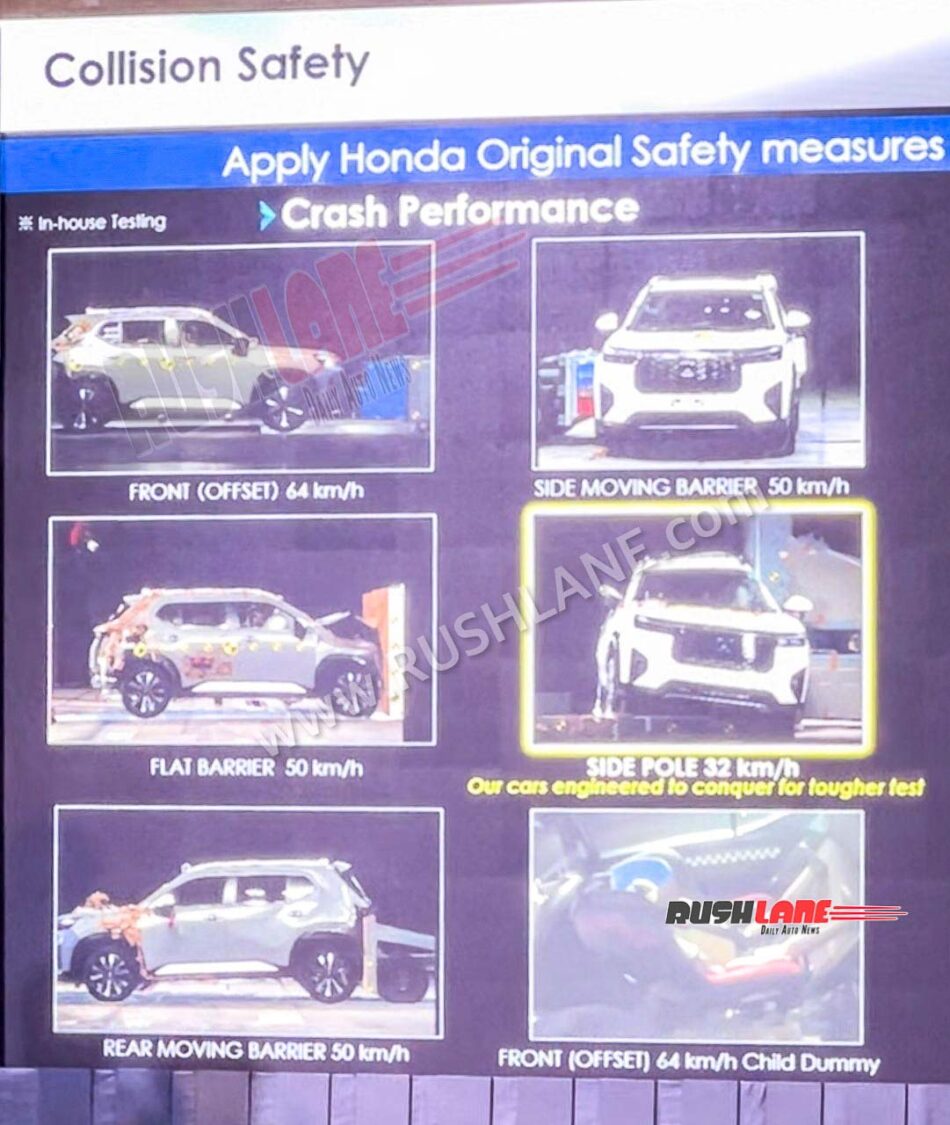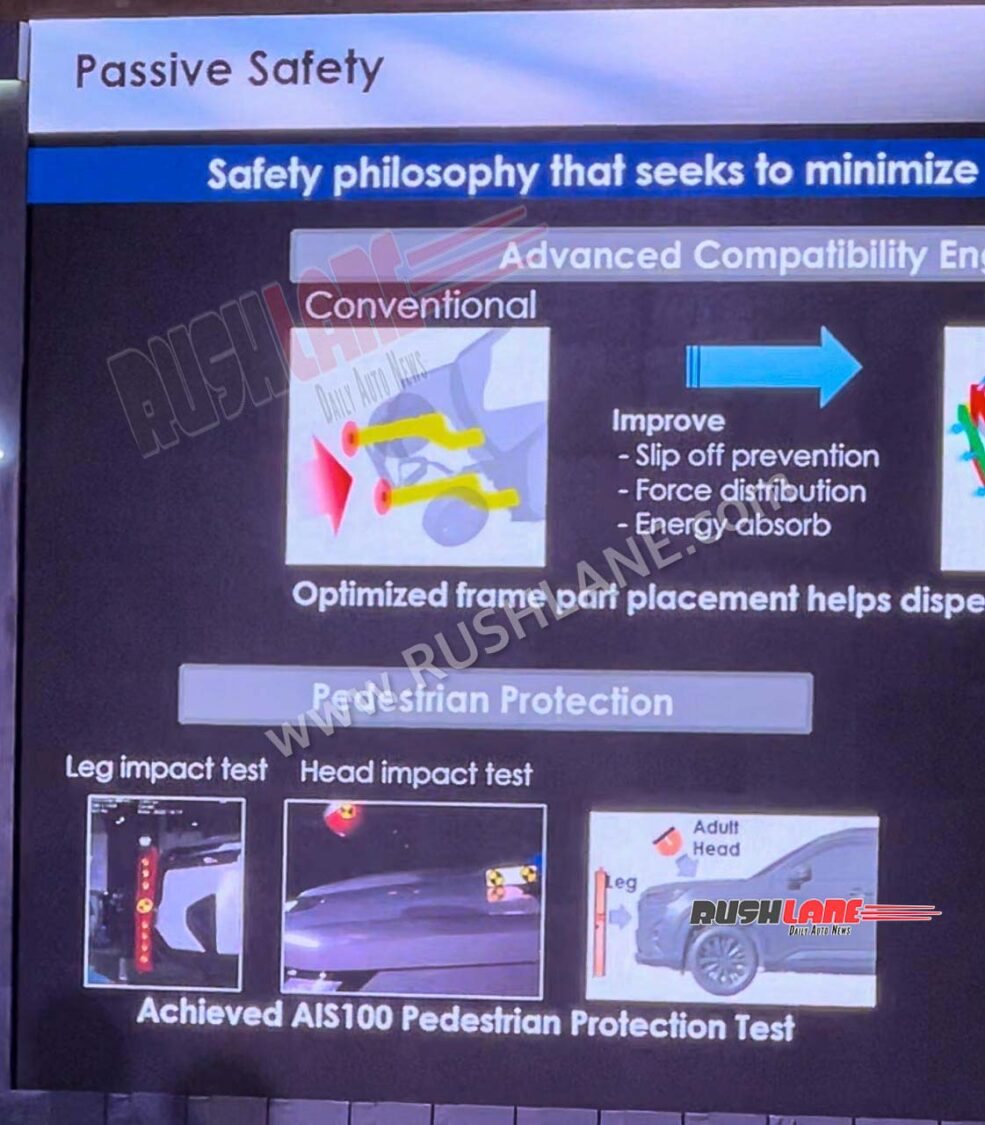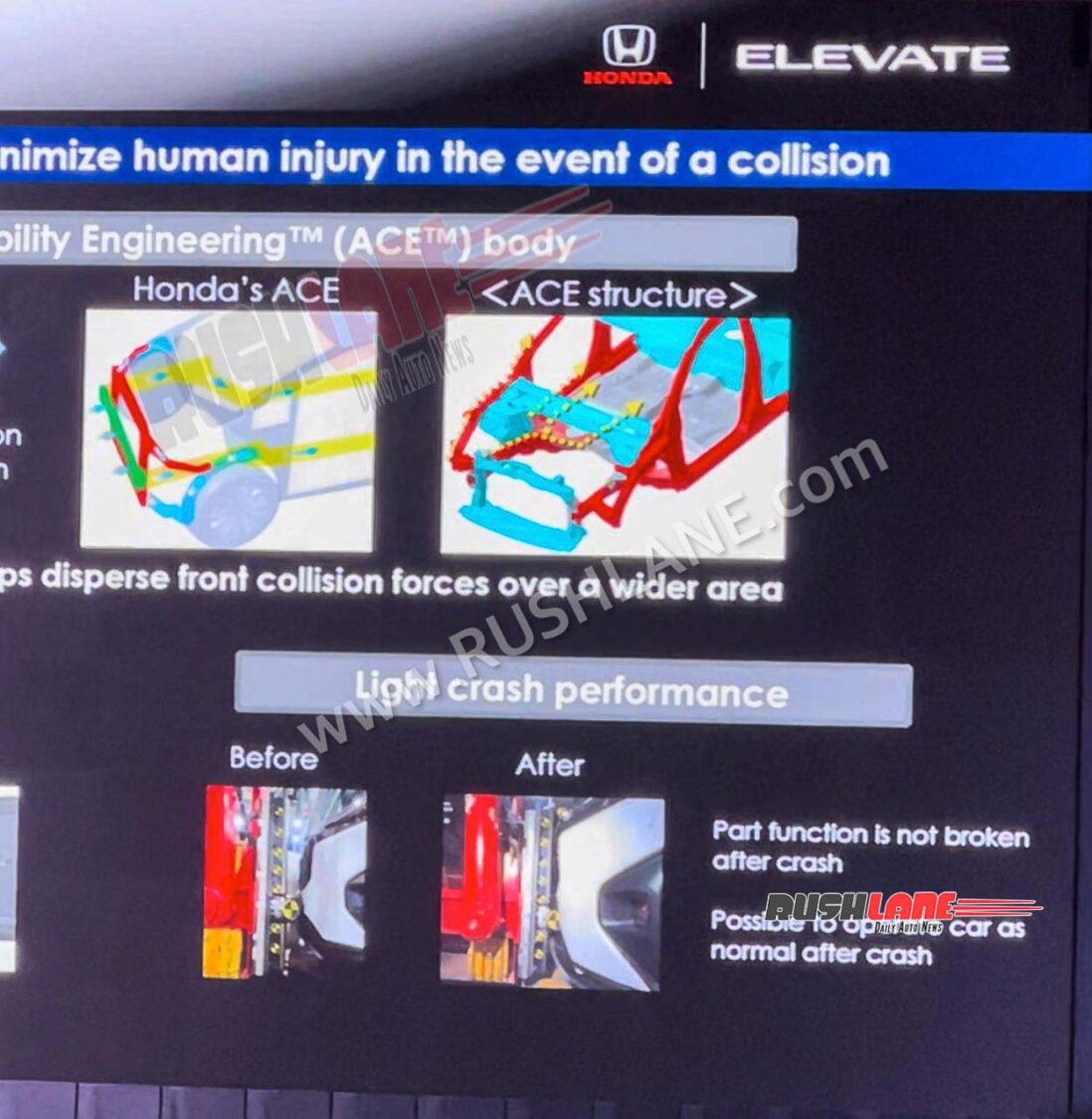
An advanced body frame and a range of driver assist features allow Honda Elevate to meet global safety standard
With awareness, car safety has emerged as an important factor in consumer decision-making process. Organizations like Global NCAP have been instrumental in letting people know about safety capabilities of various cars. The government has also been working to introduce stricter safety standards in the country.
As safety becomes a priority, OEMs are working to make their cars more robust and crash-proof. A relevant example is recently introduced Honda Elevate. At a media event, Honda revealed that Elevate has been crash tested internally. And it meets global safety standards.

Honda Elevate crash tested internally
At the ongoing media drive event of the new Elevate, Kunal Behl (Operating Head – Marketing & Strategy at Honda Cars India Ltd.) revealed that their Elevate meets global safety standards. Could this mean that Elevate will soon undergo Global NCAP crash tests? Well, we will have to wait for that one.
As far as internally conducted crash tests are concerned, Honda Elevate has delivered top-level collision safety performance. In the in-house testing, Elevate has undergone various crash tests such as front (offset) crash test at 64 kmph, side moving barrier test at 50 kmph, flat barrier test at 50 kmph, side pole impact test at 32 kmph, rear moving barrier test at 50 kmph and front (offset) test at 64 kmph with child dummy. Honda claims that Elevate has achieved desired results in all these tests.
In-house crash tests for Elevate also cover pedestrian protection. It includes leg impact test and head impact test. Elevate has officially achieved AIS100 Pedestrian Protection Test. Elevate has also been designed to effectively tackle light crash events. Some deformations are likely in such light crash events. But internal parts will continue to function normally. So, users can expect to operate the car normally after light crash events. This eliminates the possibility of getting stranded.

Honda Elevate ‘ACE’ body offers improved safety
Honda has revealed that Elevate utilizes an ACE body (Advanced Compatibility Engineering), wherein high tensile steel is used to improve occupant safety in the event of a crash. The frame is designed to disperse front collision impact over a wider area. This reduces the shock experienced by occupants. The ACE body is also designed to improve energy absorption and slip off prevention.
Another great thing about Elevate is that it is offering a range of ADAS features. It is something new in compact SUV segment, currently available with the likes MG Astor and recently launched 2023 Kia Seltos.

ADAS features for Elevate are available via Honda Sensing platform. It includes road departure mitigation system, collision mitigation braking system, lane keeping assist system, auto high beam, adaptive cruise control and lead car departure notification system. Other safety features available with Honda Elevate include 6 airbags, hill start assist, vehicle stability assist, agile handling assist, ABS with EBD, rear parking sensors and camera and emergency stop signal.

